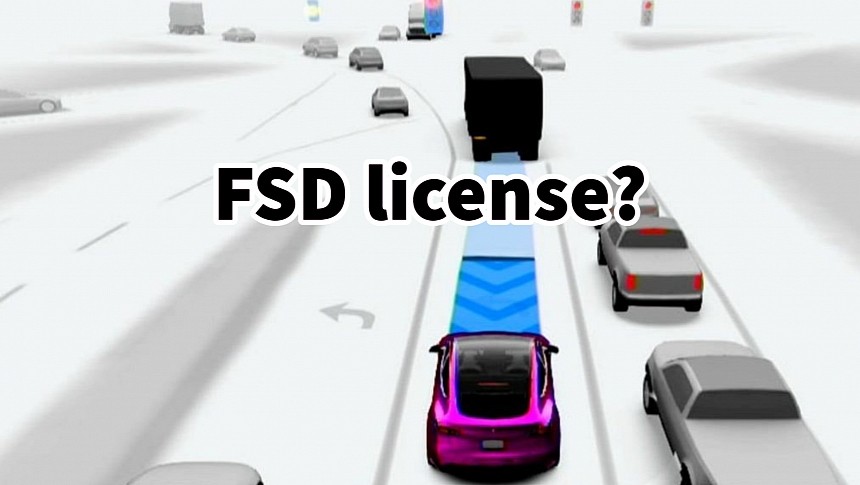One of the most important takeaways from Tesla's second-quarter earnings call was that a major carmaker might be interested in licensing FSD software and hardware. Musk confirmed that the discussions are in an early stage at this time. He expressed confidence that the FSD software would be safer than human drivers by the year's end.
Tesla's Q2 2023 earnings call offered detailed insight into FSD progress, with Musk again confident of achieving a breakthrough by the end of the year. Not only that, but the FSD software will drive better than a human by then. Musk admitted that he cried "FSD" too many times in the past, and he might still be wrong this time as he was so many times. Still, the progress with the software and the Dojo supercomputer made him wildly optimistic.
Tesla revealed that it had developed everything in-house to solve vehicle autonomy at scale. The EV maker named "the four main technology pillars" helping Full Self-Driving to take off: an extremely large real-world dataset, neural net training, vehicle hardware, and vehicle software. While hardware and software could be within reach for other carmakers, the sheer amount of data Tesla EVs collect is impossible to match. Tesla has more vehicles on the road that are collecting these data than all of the other companies combined. This puts Tesla in a unique position to solve vehicle autonomy.
Surprisingly, Musk considers the Dojo supercomputer somehow inferior to the Nvidia GPU-based supercomputer that Tesla also uses. Still, considering the limited supply of Nvidia GPUs, Tesla needs to build more of its computing hardware in-house, which makes Dojo so precious. Dojo uses highly specialized Tesla-designed chips. "Frankly, I don't know if they could deliver us enough GPUs, we might not need Dojo, but they can't," said Musk in reply to a question asked by Dan Levy from Barclays.
With the help of Dojo, Musk is confident FSD would be an essential asset for Tesla. The CEO reiterated that Tesla is open to licensing both self-driving software and hardware to other companies. He said something similar in June after signing a partnership with Ford to use the NACS. Still, things got more serious this time, as Musk confirmed that Tesla is in "early discussions" with a major carmaker about licensing FSD.
Although speculations abound, it's impossible to know for sure. Past experience showed us that Ford is more likely to work with Tesla. The Blue Oval has been forced to shut down Argo AI after spending a lot of money without getting the results needed to advance autonomous vehicles.
Tesla revealed that it had developed everything in-house to solve vehicle autonomy at scale. The EV maker named "the four main technology pillars" helping Full Self-Driving to take off: an extremely large real-world dataset, neural net training, vehicle hardware, and vehicle software. While hardware and software could be within reach for other carmakers, the sheer amount of data Tesla EVs collect is impossible to match. Tesla has more vehicles on the road that are collecting these data than all of the other companies combined. This puts Tesla in a unique position to solve vehicle autonomy.
Tesla's Dojo supercomputer is a critical ingredient
Still, the most critical ingredient is neural net training, which requires vast computing resources. This is where Tesla's Dojo supercomputer enters the stage, allowing faster and cheaper neural net training. Dojo is already in production and is expected to significantly reduce the cost of neural net training thanks to extreme optimization for processing large amounts of video data. Musk confirmed that Tesla would use both Nvidia and Dojo supercomputers to train neural networks and aims to reach 100 exaflops by the end of 2024.Surprisingly, Musk considers the Dojo supercomputer somehow inferior to the Nvidia GPU-based supercomputer that Tesla also uses. Still, considering the limited supply of Nvidia GPUs, Tesla needs to build more of its computing hardware in-house, which makes Dojo so precious. Dojo uses highly specialized Tesla-designed chips. "Frankly, I don't know if they could deliver us enough GPUs, we might not need Dojo, but they can't," said Musk in reply to a question asked by Dan Levy from Barclays.
With the help of Dojo, Musk is confident FSD would be an essential asset for Tesla. The CEO reiterated that Tesla is open to licensing both self-driving software and hardware to other companies. He said something similar in June after signing a partnership with Ford to use the NACS. Still, things got more serious this time, as Musk confirmed that Tesla is in "early discussions" with a major carmaker about licensing FSD.
Although speculations abound, it's impossible to know for sure. Past experience showed us that Ford is more likely to work with Tesla. The Blue Oval has been forced to shut down Argo AI after spending a lot of money without getting the results needed to advance autonomous vehicles.











